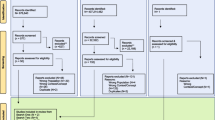Abstract
Students vocalized their concern with public health training programs in Canada at the 2010 CPHA Centennial Conference. Given these concerns, we reviewed the objectives and curricula of public health graduate (master’s) programs in Canada. Our objective was to understand to what extent public and population health graduate programs in Canada support interdisciplinary, multidisciplinary and knowledge translation and exchange (KTE) training. This was achieved through a review of all public and population health master’s programs in Canada identified from the public health graduate programs listed on the Public Health Agency of Canada website (n=33) plus an additional four programs that were not originally captured on the list. Of the 37 programs reviewed, 28 (76%) stated that interdisciplinary, multidisciplinary or cross-disciplinary training opportunities are of value to their program, with 12 programs (32%) providing multidisciplinary or interdisciplinary training opportunities in their curriculum. Only 14 (38%) of the 37 programs provided value statements of KTE activities in their program goals or course objectives, with 10 (27%) programs offering KTE training in their curriculum. This review provides a glimpse into how public health programs in Canada value and support interdisciplinary and multidisciplinary collaboration as well as KTE activities.
Résumé
Lors de la Conférence du centenaire de l’ACSP en 2010, des étudiants ont exprimé leurs inquiétudes concernant les formations dans le domaine de la santé publique au Canada. Compte tenu de ces préoccupations, nous avons passé en revue les objectifs et le curriculum des différents programmes d’études de 2e cycle (maîtrise) en santé publique existant au Canada. Notre objectif était de comprendre dans quelle mesure ces programmes permettent aux étudiants de bénéficier d’une formation aussi bien interdisciplinaire que multidisciplinaire, et qui facilite l’application et l’échange des connaissances (AEC). Nous avons parcouru la liste des programmes d’études de 2e cycle en santé publique disponibles sur le site de l’Agence de la santé publique du Canada (n=33), ainsi que quatre programmes additionnels qui étaient absents de la liste. Sur les 37 programmes évalués, 28 (76 %) indiquent que les aspects interdisciplinaires et multidisciplinaires sont essentiels à leurs programmes, tandis que 12 d’entre eux proposent une formation impliquant des aspects multidisciplinaires et interdisciplinaires dans leur curriculum. Seulement 14 (38 %) des 37 programmes appuient clairement leurs objectifs de programmes ou les cours offerts sur des activités d’AEC, dont 10 (27 %) qui proposent une formation à l’AEC dans leur curriculum. Notre étude donne un aperçu de la façon dont les différents programmes en santé publique disponibles au Canada facilitent et valorisent la collaboration interdisciplinaire et multidisciplinaire, ainsi que les activités d’AEC.
Similar content being viewed by others
References
Canadian Public Health Association. Archive of the CPHA Centennial Conference, 2010. Available at: http://www.cpha.ca/en/conferences/archives/conf2010.aspx (Accessed September 1, 2010).
el Ansari W, Russell J, Spence W, Ryder E, Chambers C. New skills for a new age: Leading the introduction of public health concepts in healthcare curricula. Public Health 2003;117(2):77–87.
Public Health Agency of Canada. Graduate Training, 2010. Available at: http://www.phac-aspc.gc.ca/php-psp/master_of_php-eng.php (Accessed December 28, 2010).
University of British Columbia Master of Public Health Degree Program. Available at: http://www.mph.spph.ubc.ca/index.php (Accessed May 24, 2011).
University of Saskatchewan School of Public Health. Required Courses. Available at: http://www.usask.ca/sph/graduate_programs/mph/required_ courses.html (Accessed January 28, 2011).
McMaster University Health Research Methodology Program. Course List. Available at: http://www.fhs.mcmaster.ca/hrm/course_list.html (Accessed February 12, 2011).
Neuhauser L, Richardson D, Mackenzie S, Minkler M. Advancing transdisciplinary and translational research practice: Issues and models of doctoral education in public health. J Res Pract 2007;3(2):1–23.
Hoffman E, Massion C. Women’s health as a medical specialty and a clinical science. In: Sherr L, St Lawrence JS (Eds.), Women, Health, and The Mind. Sussex, England: John Wiley & Sons Ltd, 2000;3–16.
Graham ID, Logan J, Harrison MB, Straus SE, Tetroe J, Caswell W, et al. Lost in knowledge translation: Time for a map? J Continuing Educ Health Professions 2006;26(1):13–24.
Author information
Authors and Affiliations
Corresponding author
Additional information
Conflict of Interest: None to declare.
Rights and permissions
About this article
Cite this article
Mishra, L., Banerjee, A.T., MacLennan, M.E. et al. Wanted: Interdisciplinary, Multidisciplinary, and Knowledge Translation and Exchange Training for Students of Public Health. Can J Public Health 102, 424–426 (2011). https://doi.org/10.1007/BF03404192
Received:
Accepted:
Published:
Issue Date:
DOI: https://doi.org/10.1007/BF03404192




